A mix of arcs and books I bought myself, but hoo boy, there were a lot of Fails this month.
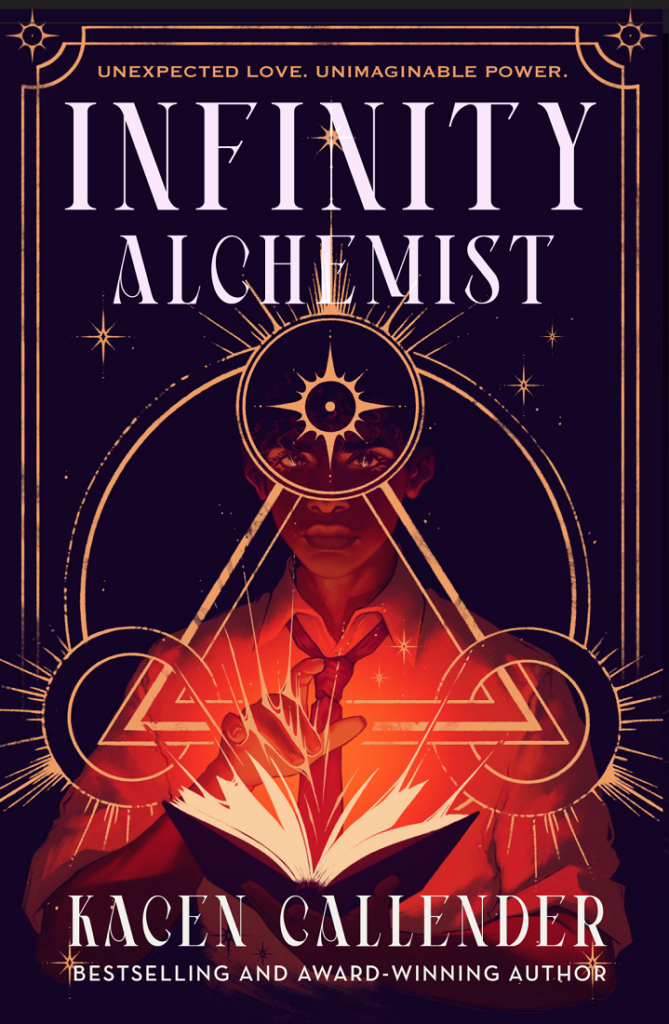
Genres: Fantasy, Queer Protagonists
Representation: Black trans bi/pansexual MC, genderfluid bi/pansexual love interest, bi/pansexual love interest
ISBN: B0C572T6GP
Goodreads

Infinity Alchemist is a spellbinding novel about a quest that leads three young alchemists toward unexpected love and unimaginable power.
With their signature "prowess" (FIYAH) and "unbridled creativity" (New York Times Book Review), acclaimed author Kacen Callender turns their formidable skill to young adult fantasy for the first time.
For Ash Woods, practicing alchemy is a crime.
Only an elite few are legally permitted to study the science of magic—so when Ash is rejected by Lancaster College of Alchemic Science, he takes a job as the school’s groundskeeper instead, forced to learn alchemy in secret.
When he’s discovered by the condescending and brilliant apprentice Ramsay Thorne, Ash is sure he's about to be arrested—but instead of calling the reds, Ramsay surprises Ash by making him an offer: Ramsay will keep Ash's secret if he helps her find the legendary Book of Source, a sacred text that gives its reader extraordinary power.
As Ash and Ramsay work together and their feelings for each other grow, Ash discovers their mission is more dangerous than he imagined, pitting them against influential and powerful alchemists—Ash’s estranged father included. Ash’s journey takes him through the cities and wilds across New Anglia, forcing him to discover his own definition of true power and how far he and other alchemists will go to seize it.
Featuring trans, queer, and polyamorous characters of color, Infinity Alchemist is the hugely anticipated young adult fantasy debut from the extraordinary author of Felix Ever After, King and the Dragonflies, Queen of the Conquered and more.
I received this book for free from the publisher via NetGalley in exchange for an honest review. This does not affect my opinion of the book or the content of my review.
This was going really well until I started to approach the halfway point – when a huge, major, life-and-game-changing event is summarised for us instead of playing out on the page. That is something I really can’t stand, but for once I actually pushed on.
But then we have the utter nonsense that is Ash’s imprisonment. Look, when alchemy comes down to focus and imagination, how can you keep an alchemist imprisoned without drugging them so they can’t focus? If you leave them clear-headed, what’s to stop them from blowing up a wall and escaping?
Nothing. But that doesn’t happen, because Reasons, I guess?
How can you possibly justify allowing someone with that kind of power to wander around unimpeded, accompanied only by a young (and therefore less experienced!) guard, who is not themselves a proper magic user? THIS KID COULD BLOW YOU ALL UP AT ANY MOMENT, AND THAT’S JUST FINE???
(There’s a scene where a fellow trainee guard points out how dangerous and unreasonable the situation is, to which the response is something along the lines of ‘what good are we if 20 of us can’t take out one alchemist?’ UM, YOU’RE ALL TRAINEES? AND HE’S ALREADY DEMONSTRATED HE’S A LIVING BOMB AT LEAST ONCE? I THINK IT IS VERY REASONABLE TO FIND THIS SITUATION UNREASONABLE, ACTUALLY.)
And this is all after the unbearably-contrived Because Plot dance that was Ash not getting executed for what he’d done – not that I’m sure he should have been executed for it, but the intervention, the arguments and reasoning that stopped the wheels of the law and kept him alive – it wasn’t the tiniest bit convincing.
I just couldn’t believe that rational human beings would ever behave this way – re not drugging a magic user, re the guard, re keeping him alive at all. When you’re telling a story and run into this problem – no real person would do The Thing – you’ve either got to change what happens or come up with something extremely clever to justify it, and that just didn’t happen here.
For the record, although I was really excited to be diving into a fantasy with a polyamorous romance, I didn’t think either of the love interests were worthy of Ash. Both of them come from upper class backgrounds, and at least in the first half of the book (all I read – so for all I know, this gets dealt with better in the rest of the book) neither of them seemed to grasp the difference their wealth made between their situations and lives, and Ash’s. I thought they were both quite awful about it, actually; for me, it massively outweighed their good points, which meant I wasn’t at all invested in the romance plotline/s.
I also really, really hated the reveal of where the Quest Object was. OF ALL THE PLACES ON THE ENTIRE PLANET. OUT OF ALL THE WORLDS YOU VISIT WHILE ASTRAL-PROJECTING. IT’S THERE??? That’s just too easy.
Noooooooooooo thank you. Sia out.
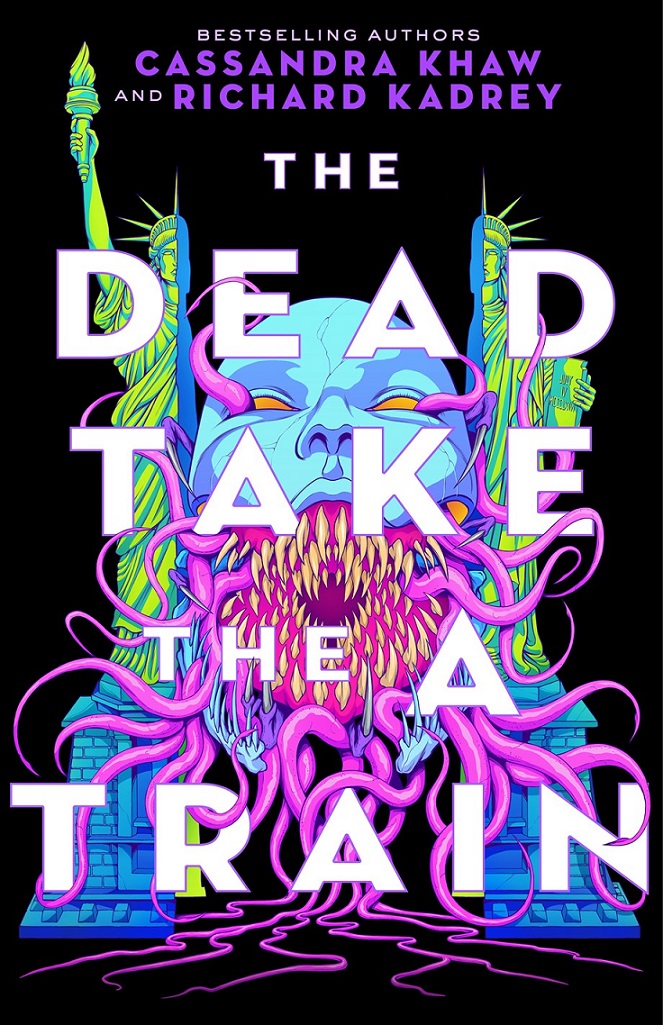
Genres: Fantasy, Contemporary or Urban Fantasy, Queer Protagonists
Representation: Sapphic MC, nonbinary secondary character
PoV: Third-person, past tense; multiple PoVs
ISBN: B0BQGJRBQR
Goodreads

Bestselling authors Cassandra Khaw and Richard Kadrey have teamed up to deliver a dark new story with magic, monsters, and mayhem, perfect for fans of Neil Gaiman and Joe Hill.
Julie Crews is a coked-up, burnt-out thirty-something who packs a lot of magic into her small body. She’s been trying to establish herself in the NYC magic scene, and she’ll work the most gruesome gigs to claw her way to the top.
Julie is desperate for a quick career boost to break the dead-end grind, but her pleas draw the attention of an eldritch god who is hungry for revenge. Her power grab sets off a deadly chain of events that puts her closest friends – and the entire world – directly in the path of annihilation.
The first explosive adventure in the Carrion City Duology, The Dead Take the A Train fuses Khaw’s cosmic horror and Kadrey’s gritty fantasy into a full-throttle thrill ride straight into New York’s magical underbelly.
This is not a bad book: in fact, from what I’ve read of it (about the first quarter) it’s freaking awesome.
…But as I feared, I am WAY too much of a wimp to be able to handle it. There’s so much gore! Really graphic, gross gore! And seriously icky monsters! And everything is so grim and heartbreakingly – depressing isn’t quite the right word. Hard, maybe? It’s poverty and rich people spitting on you and capitalism just out to stomp on you, but with literal soul-eating demons.
And I cannot handle it, even if the prose is, as expected with Khaw involved, phenomenal. I even love the main character and her friends! But I’m too much of a wimp to survive the actual story.
(I do hope I can give this another go in the future. I really want to read it! I just…can’t. At least not right now. Alas!)

Genres: Fantasy, Historical Fantasy, Queer Protagonists
Representation: M/M
PoV: Third-person, past-tense; multiple PoVs
Published on: 7th May 2024
ISBN: 1039007570
Goodreads

Set in a Jewish folklore-inspired reimagining of 19th century Eastern Europe, this queer dark fantasy debut pits two estranged husbands and a daring spymaster on opposite sides of a civil war.
Dimitri Alexeyev used to be the Tzar of Novo-Svitsevo. Now, he is merely a broken man, languishing in exile after losing a devastating civil war instigated by his estranged husband, Alexey Balakin. In hiding with what remains of his court, Dimitri and his spymaster, Vasily Sokolov, engineer a dangerous ruse. Vasily will sneak into Alexey’s court under a false identity to gather information, paving the way for the usurper’s downfall, while Dimitri finds a way to kill him for good.
But stopping Alexey is not so easy as plotting to kill an ordinary man. Through a perversion of the Ludayzim religion that he terms the Holy Science, Alexey has died and resurrected himself in an immortal, indestructible body—and now claims he is guided by the voice of God Himself. Able to summon forth creatures from the realm of demons, he seeks to build an army, turning Novo-Svitsevo into the greatest empire that history has ever seen.
Dimitri is determined not to let Alexey corrupt his country, but saving Novo-Svitsevo and its people will mean forfeiting the soul of the husband he can’t bring himself to forsake—or the spymaster he’s come to love.
I received this book for free from the publisher via NetGalley in exchange for an honest review. This does not affect my opinion of the book or the content of my review.
I should have realised my relationship with this book was doomed the moment I read this travesty
It’s not as if he’s going to be able to cut a transport deal to the east with the Urushkins without getting his balls handed back to him on a silver platter with a side of caviar.”
Dimitri blinked to clear the visions from his mind of what he and Alexey had done with caviar.
halfway through the opening chapter.
CAVIAR IS NOT SEXY. I DO NOT WANT MENTAL IMAGES OF WHAT THESE TWO MIGHT HAVE BEEN DOING WITH CAVIAR IN A SEXUAL CONTEXT. STOP IT. WHY. WHY WOULD YOU EVEN GO THERE. WHAT DID I EVER DO TO YOU.
YES I AM KINK-SHAMING YOU. BITE YOUR CAVIAR ME AND SHUT UP.
(In complete fairness, this isn’t indicative of Samotin’s skill, or lack thereof, with sex scenes, because the sex scenes are actually perfectly fine. I just feel like there’s something about this caviar thing that proves this writer has a fundamental misunderstanding of what the reader is going to find sexy and/or funny, because seriously – caviar??? Imagine that on your skin! GROSS.)
Dimitri has a lot of reasons to angst, but his complete lack of hope or anything like it makes for pretty miserable reading, and didn’t give me a lot to empathise with. You are, arguably, a Tsar; you don’t get to give up, because you have a responsibility to your people to get them out of the mess you left them in. Alternatively, if you are going to give up, then fucking give up and don’t let your people – the ones who escaped with you into exile – risk themselves in working to get you back your throne.
Pick a lane and commit to it!
Then we have the villain, Alexey, Dimitri’s ex-husband, who wants to rule the imperial court through fear, but also by example re being forward-thinking and demonstrating that he is The Most Modern And Smartest. He leans into them thinking he’s some kind of demon by dressing in all-black, but hates superstition and is vaguely offended they think he’s a demon. But lets the nobles get away with wearing anti-demon talismans, even though a) superstition and b) if they think he’s a demon, then their wearing these talismans is hugely rude and arguably a kind of treason.
Forget the court, it feels a lot more like Samotin can’t decide whether or not he’s a demon. Once again: pick a take/approach and commit to it, for crying out loud.
Then we have the third PoV character, the Tsar-in-exile’s vaunted spymaster, who genuinely thinks this
Vasily just wished he’d never seen Alexey in person. It was hard to reconcile knowing Alexey was evil with thinking that he was insufferably handsome.
You’re a SPY. A SPY. How can it possibly be difficult for you to accept that handsome people are evil? Shouldn’t you of all people know that appearances are meaningless? What with being a SPY? An honest-to-gods SPYMASTER, in fact?
So basically, all three of our main characters are pretty poorly-written, imo, being weak, contradictory, and idiotic to varying degrees.
The main issue, though, is just that I find the writing really basic and blunt. The language level and sentence structure and so on are really simplistic, and therefore boring, no matter how interesting the plot and themes might be. Word choice and phrasing are both so dull – I want prose that’s complex, that engages me, that I’m not editing in my head as I read to make it sound more sophisticated and polished. It kind of feels like, having created an interestingly complicated story, Samotin was worried about us being able to follow it all and dumbed down the writing to make it easier on us.
There’s also an awful lot of info-dumping, which, I get that Samotin chose to set the story after the big war and therefore has to find a way to tell us all about it, but – that was a choice that was made, and you’re responsible for the effects of that choice. Find a better way to get us all this information than dropping it on us like lead weights.
Hard DNF. There’s the bones (hah) of a really great story here, but I absolutely cannot stand the execution of it.
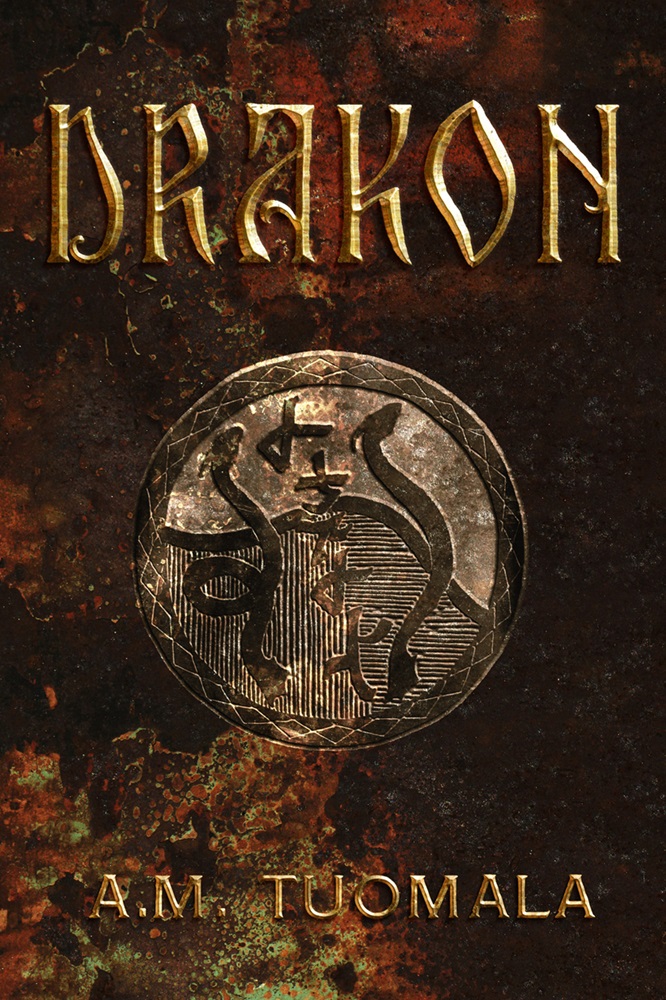
Genres: Fantasy, Historical Fantasy
Representation: Lesbian MC
ISBN: 9781936460410
Goodreads

A hundred years ago, the dragons abandoned Russia and defected to Turkey. Ever since, the Tarasov family has held the Russian border. Now, as war looms in the south and the century-old mystery of the Defection cracks open, the Tarasovs must face their family’s old sins and put aside their differences … or watch Russia fall.
I think it’s time to admit that I am not going to finish this. I am bored out of my MIND, because this really isn’t a dragon book, it’s almost entirely about a messed-up family of (very down on their luck) Russian nobles. What we got about the dragons and their language was amazing, but for some inexplicable reason the focus is all on these dysfunctional siblings and which of them (if any) murdered their father. I don’t care about murder mysteries, I don’t care about family drama unless it’s far weirder than this, and I definitely don’t care about Industrial Age Russia. I ended up using this as an insomnia cure, because it put me to sleep like magic.
This is so strange given that I adored Tuomala’s latest book, The Map and the Territory (which I STRONGLY recommend) but I guess at least this part of their backlist is really not for me!

Genres: Horror, Queer Protagonists
Representation: M/M, sapphic MC
Published on: 19th March 2024
ISBN: 1803365927
Goodreads

Mexican Gothic meets The Lie Tree by way of Oscar Wilde and Mary Shelley in this delightfully witty horror debut. A captivating tale of two Victorian gentlemen hiding their relationship away in a botanical garden who embark on a Frankenstein-style experiment with unexpected consequences.
It is an unusual thing, to live in a botanical garden. But Simon and Gregor are an unusual pair of gentlemen. Hidden away in their glass sanctuary from the disapproving tattle of Victorian London, they are free to follow their own interests without interference. For Simon, this means long hours in the dark basement workshop, working his taxidermical art. Gregor's business is exotic plants – lucrative, but harmless enough. Until his latest acquisition, a strange fungus which shows signs of intellect beyond any plant he's seen, inspires him to attempt a masterwork: true intelligent life from plant matter.
Driven by the glory he'll earn from the Royal Horticultural Society for such an achievement, Gregor ignores the flaws in his plan: that intelligence cannot be controlled; that plants cannot be reasoned with; and that the only way his plant-beast will flourish is if he uses a recently deceased corpse for the substrate.
The experiment – or Chloe, as she is named – outstrips even Gregor's expectations, entangling their strange household. But as Gregor's experiment flourishes, he wilts under the cost of keeping it hidden from jealous eyes. The mycelium grows apace in this sultry greenhouse. But who is cultivating whom?
Told with wit and warmth, this is an extraordinary tale of family, fungus and more than a dash of bloody revenge from an exciting new voice in queer horror.
I received this book for free from the publisher via NetGalley in exchange for an honest review. This does not affect my opinion of the book or the content of my review.
I made it all the way to 66% on this one – I tried so hard – but I don’t want to pick it up again. I definitely enjoyed it back near the beginning, but more and more reading it feels like a chore. And then, as so often happens, I remembered that I do not have to read this, so now I’m going to stop.
The writing itself is great, and I loved the sheer weirdness of the set-up: these two life-partnered men, one a stoic taxidermist and the other a doctor/professor of botany, living together in a giant jungle of a greenhouse. Both are grumpy, not likeable in the typical sense, and yet, I liked them both.
Gradually, though, the characters kind of fall apart. And I don’t mean in the fun way, wherein they slowly lose their sanity or grip on reality. (Although arguably that is also kind of happening, at least with one or two of the cast.) What I mean is, pretty much all of them – but especially Simon and Gregor – start doing these emotional 180s, where they suddenly and dramatically announce that they’ve changed their opinion on something important. But these changes come out of nowhere, with no warning and no explanation. And they happen over and over and over. If it had only happened once, I’d have been confused, but I probably would have kept reading. But by the fifth or sixth time one of them had declared themselves of the entire opposite opinion to what they’d been yesterday… Or made some decision, or set out on some very serious action, that seemed completely random… I had whiplash, and had lost all sense of who these characters were supposed to actually be. It was as though big chunks of their personality had become whatever the author needed them to be at the time for the best dramatic effect. And that doesn’t make for good reading – at least not for me.
There was also one pretty big logic fail that really bothered me, which is a little spoilery so I’ll stick it under a tag: View Spoiler »
As for the horror aspect…well, I wasn’t scared, and I’m a complete wimp when it comes to scariness, so that should probably tell you something. To be honest, I was kind of rolling my eyes when the horror aspect started to manifest. I don’t really buy into ‘non-human creations start killing Just Because’. It feels lazy. I wanted an explanation for why Chloe was becoming violent, a good one, and in fairness maybe I would have gotten one if I’d finished the book. But I doubt it, and if we did get one, I doubt it’d be one that would satisfy me. I’m not sure exactly when I lost faith in this author’s promise of a satisfying story, but I definitely did.
And ultimately… I was surprised by how hard I had to work to buy into the capabilities of the mycelium that kickstarts, and is the heart of, Botanical Daughter. I read stories with much stranger premises every day, and have no trouble rolling with whatever Not Real thing is going on! I’m wondering if the problem here was how hard the book tried to convince me? We get excerpts from Gregor’s scientific notes on his experiment, and every single other plant and fungus used in Chloe’s creation is detailed for us – this one to replace arm muscles, this other one to make a tongue, for example. But the flip side of that is that there’s no human brain for the mycelium to infect/manipulate; that’s removed from the corpse. I feel like I would have had an easier time suspending my disbelief if the brain had been left in; at least then it could be something like ophiocordyceps unilateralis – aka zombie-ant fungus. It would feel a little more grounded in the possible. Instead, when Gregor’s mycelium manages to figure out how to see using the body’s eyes – it just felt completely absurd. How can a fungus process sensory input from the eyes? But if there had been a brain, a brain that knew how to process input like that, and the mycelium took over/made use of the brain…? I don’t know, it would have made more sense to me. And because it didn’t make sense, but was trying to, I think something got lost. My ability to believe in it even in fiction, for one.
I don’t know, folx. This one just wasn’t for me.
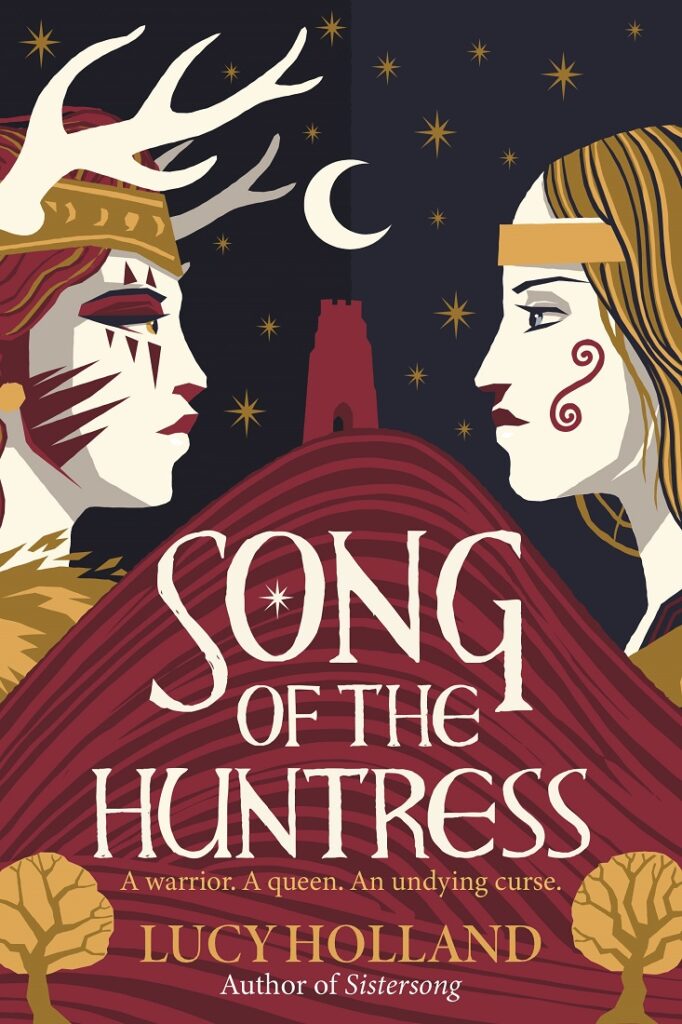
Genres: Fantasy, Historical Fantasy, Queer Protagonists
Representation: Bi/pansexual MC, sapphic MC, asexual POV character
PoV: Third-person, present-tense, multiple PoVs
ISBN: B0C9ZPDTR9
Goodreads

The acclaimed author of Sistersong transforms the story of Herla and the Wild Hunt into a rich, feminist fantasy in this stunning tale of two great warriors, a war-torn land, and an ancient magic that is slowly awakening.
Britain, 60AD. Hoping to save her lover, her land, and her people from the Romans, Herla makes a desperate pact with the king of the Otherworld. But years pass unheeded in his realm, and she escapes to find everyone she loved long dead. Cursed to wield his blade, she becomes Lord of the Hunt. And for centuries, she rides, leading her immortal warriors and reaping wanderers’ souls. Until the night she meets a woman on a bloody battlefield—a Saxon queen with ice-blue eyes.
Queen Æthelburg of Wessex is a proven fighter. But when she leads her forces to disaster in battle, her husband’s court turns against her. Yet King Ine needs Æthel more than ever. Something dark and dangerous is at work in the Wessex court. His own brother seeks to usurp him. And their only hope is the magic in Ine’s bloodline that’s lain dormant since ancient days.
The moment she and Æthel meet, Herla knows it’s no coincidence. The dead kings are waking. The Otherworld seeks to rise, to bring the people of Britain under its dominion. And as Herla and Æthel grow closer, Herla must find her humanity—and a way to break the curse—before it’s too late.
I received this book for free from the publisher via NetGalley in exchange for an honest review. This does not affect my opinion of the book or the content of my review.
I’ve gotta be honest, it’s hard for me to figure out how you can take woman leader of the Wild Hunt falls for a mortal queen and turn it into a story that bores me, but here we are, I guess.
The opening – Herla’s origin story, basically, the rundown of how she became leader of the Wild Hunt – was fabulous. Unfortunately, after that we were slammed into the very dull, sexist court intrigue (kinda) of Saxon Britain, and Holland doesn’t write it nearly as beautifully as Griffith in Hild and Merewood. Plus, without having read Griffith’s books, I wouldn’t really have a clue what was going on or much about the time period, because not much is actually explained in Song of the Huntress. It’s a very much ‘swim or drown’ approach to worldbuilding, which I don’t mind in secondary world settings, but for some reason massively frustrate me in historical ones.
It didn’t help that a big chunk of the first part of the book is confusing as fuck, honestly – not even the worldbuilding or politics, but the actual story. The king has a vision/visitation from an enemy king, and Things Happen – but it was not at all clear what was happening in what order. At first I thought Holland had messed up and accidentally forgotten to mention that two weeks had passed (one of the enemy king’s comments led me to believe The Thing was happening in two weeks), and it took five or six chapters before I was able to work out that no, this all went down in one night. Which is not inherently a problem; the problem is that that wasn’t clear, and even the fall-out of those events didn’t make it obvious when or how it had all happened. I kept thinking my arc was missing chapters, because no one was explaining how they knew this, or that, or when x or y had been said, or when exactly those orders had been given. AND SO ON. It was confusing as hell and maddening to read.
The rest? Was just dull. Herla and Æthel’s fascination with each other felt unconvincing to me, a little too insta-lust, and I wasn’t expecting Herla to be masquerading as a normal human woman for so long. I wanted much more uncanny and primal magic than we were getting in the first half or so of the book, and I was just bored; it all felt so mundane, with none of the eldritch strangeness and magic I was hoping for. To say nothing of the whole ‘Christianity is once again fucking up and also Wrong about literally everything’. Listen: I’m ex-Catholic and pretty anti-Christianity myself, but this is a theme/plotline I have seen so many times, and I’m sick to death of it. If you can fit a warrior queen into this time period, couldn’t you have a Not Completely Idiotic priest too??? It would be a nice twist!
Although it was interesting to have an asexual king in this kind of setting, I have zero patience for miscommunication plotlines – and Ine’s inability/refusal to just tell Æthel that she’s not the problem, ie the reason they’re not having sex, and his weakness in letting the court blame Æthel for her childlessness, enraged me and made me despise him. The revelation that came about his bloodline just…felt really forced and underwhelming, and left me feeling some kind of uncomfortable and unhappy – I don’t know why, but it felt very wrong that he receive the ancestral magics that rightly belonged to the native Brits, even though he didn’t deliberately steal them or anything.
I had some curiousity about a few of the minor points of the story – like Emrys! – but not nearly enough to keep me reading when all the major stuff was sending me to sleep. I may come back and give it another try later – maybe – but I have zero interest in it right now when more compelling books are calling my name!
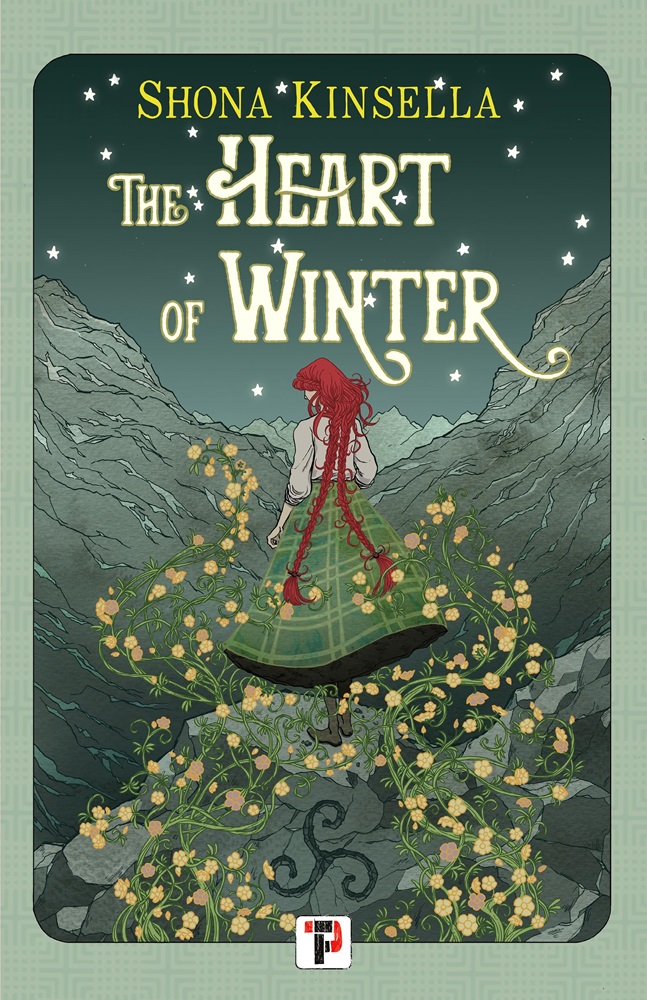
Genres: Fantasy, Historical Fantasy
PoV: Third-person, past-tense
Published on: 16th April 2024
ISBN: 1787588327
Goodreads

Readers of Sistersong by Lucy Holland, Cast Long Shadows by Cat Hellisen and The Pendragon Cycle by Stephen Lawhead wil love this fantasy tale of folklore and myth from Scotland.
When Brigit is faced with a forced marriage to Aengus, god of Summer, she flees into the highlands in search of the Cailleach, the Queen of Winter. There, she hopes to learn how to live on her own terms, without the need for a man to speak for her, but can she persuade the Cailleach that she is worthy? Caught between two gods and finding an unlikely ally in the Fae witch, Nicnevin, Brigit will be tested to her limits and beyond.
I received this book for free from the publisher in exchange for an honest review. This does not affect my opinion of the book or the content of my review.
A very dull book that did not have the prose to keep me reading a story I didn’t care about. 24% in the story was just getting started, and there was absolutely nothing to keep me engaged, to give me a reason to care about how the story would end. All of the characters are embarrassingly one-dimensional, defined by one trait – our MC, for example, simply Doesn’t Want To Marry, and a) I am tired of heroines like this, we have seen this exact character 5000 times before, and b) I need the characters I read about to have more to their personality than that!
And that’s without getting into the very choppy writing, or the cringingly false/forced dialogue. Or the complete lack of explanation as to why Brigit is seemingly unafraid of the Cailleach, displaying no nerves or worry about setting off to bother an extremely powerful goddess – I mean, even among goddesses, the Cailleach is extremely powerful and massively dangerous (albeit not usually depicted as intentionally evil). If I was going to ask her a favour, I would be very nervous – and bring her a lot of presents! But Brigit seems completely unconcerned???
Lastly – and this is just me being nitpicky – I didn’t like Kinsella’s take on Scottish mythology. It bugged me that Kinsella had Aengus as the god of summer to the Cailleach’s winter. The Cailleach shares the year with the goddess Brìghde or Bridget – sometimes she and the Cailleach are two faces or aspects of the same goddess, and sometimes they’re entirely separate deities, but in neither case is some dude the one who brings summer! In any case, while the Cailleach shows up in all the Gaelic mythologies, Aengus is specifically Irish, and therefore has no place in this story ANYWAY. (In fairness, the book does acknowledge that Aengus is of another pantheon, the Tuatha Dè Danann – I skipped ahead to check – but doesn’t explain what that means, or who the Tuatha are, so good luck if you don’t already know. Plus no explanation as to what one of them is doing messing about in Scotland.)
I hope our MC ends up the goddess Bridget, and also that she and Nicnevin become girlfriends, but I simply don’t want to waste my time on meh writing and bland characters.
If you, like me, were hoping for queerness… View Spoiler »
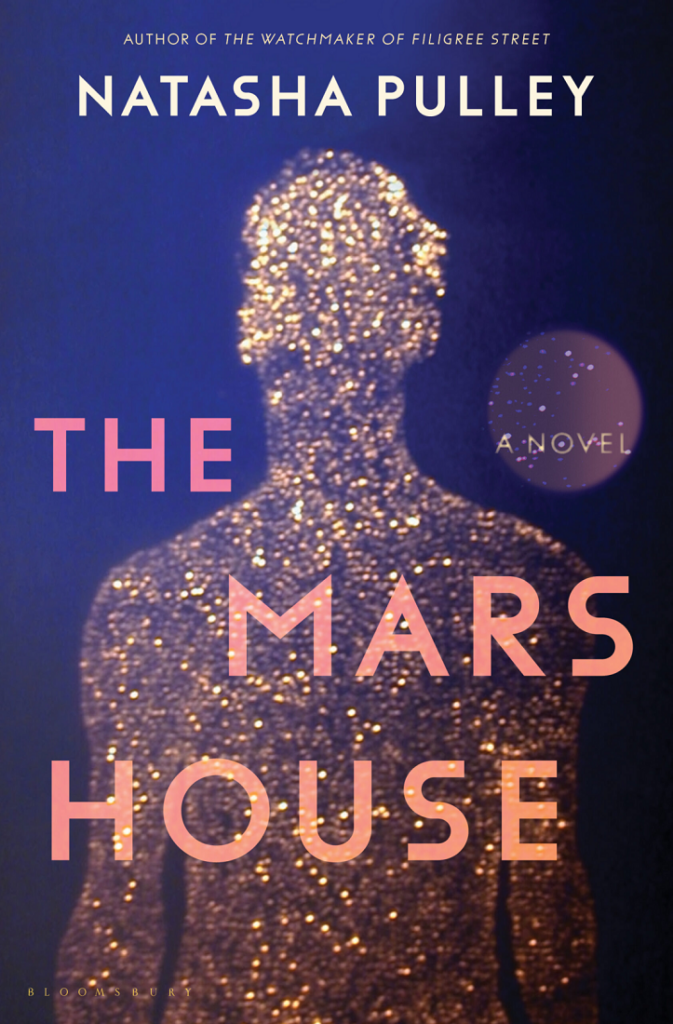
Genres: Queer Protagonists, Sci Fi
Representation: Queer MC, agender love interest
PoV: Third-person, past-tense
ISBN: 1639732349
Goodreads

From the author of The Watchmaker of Filigree Street, a queer sci-fi novel about an Earth refugee and a xenophobic Mars politician who fake marry to save their reputations—and their planet.
In the wake of environmental catastrophe, January, once a principal in London’s Royal Ballet, has become a refugee on Tharsis, the terraformed colony on Mars. In Tharsis, January’s life is dictated by his status as an Earthstronger—a person whose body is not adjusted to Mars’s lower gravity and so poses a danger to those born on, or naturalized to, Mars. January’s job choices, housing, and even transportation options are dictated by this second-class status, and now a xenophobic politician named Aubrey Gale is running on a platform that would make it all worse: Gale wants all Earthstrongers to be surgically naturalized, a process that can be anything from disabling to deadly.
When Gale chooses January for an on-the-spot press junket interview that goes horribly awry, January’s life is thrown into chaos, but Gale’s political fortunes are damaged, too. Gale proposes a solution to both their problems: a five-year made-for-the-press marriage that would secure January’s financial future without naturalization and ensure Gale’s political future. But when January accepts the offer, he discovers that Gale is not at all like they appear in the press. And worse, soon, January finds himself entangled in political and personal events well beyond his imagining. Gale has an enemy, someone willing to destroy all of Tharsis to make them pay—and January may be the only person standing in the way.
Is this super readable and superficially interesting? Definitely. But when every BlPOC reader is telling you the author majorly fucked up here, you really have to listen, whether or not you, a white reader, can properly see it for yourself.
I can see that Tharsese culture isn’t different enough from British culture to read as Chinese-inspired, which right away validates everyone saying Pulley did not do her research, worldbuilding, or writing well and respectfully re a culture that isn’t hers. I can see that the political situation Pulley has created in this book, re immigrants being Unspeakably Dangerous and needing to be literally caged for everyone’s safety, is horrific messaging – especially from a UK author, given the UK’s horrific anti-immigration/refugee position right now. And as a nonbinary person, I have some discomfort with Pulley’s attempt at a genderless society – hard to articulate, but it rubs me the wrong way. The only way to stop femicide was…to eliminate women (and men) entirely? Doesn’t that sound somehow wrong? And if you genetically remove ‘extreme gender traits’ from people, and then declare them genderless, have you not just said that sex and gender (because what you actually did was remove the most visually obvious sex characteristics, not gender traits, those are wildly different things) are the same thing? Which is, uh. TERF logic?
I didn’t read this the whole way through, but I read the first few chapters and the last few, and – this is sci fi. That means you make the rules. Why didn’t you invent a better solution to the problem you made up than putting people in cages, or fucking with their biology in a way that destroys them and takes decades off their life expectancy? Make something up! You are limited only by your imagination! If we can have mammoths on Mars – a NON-TERRAFORMED Mars at that! – then we can have anything! It’s just lazy not to come up with something better.
Putting refugees in camps when they get to your planet…come on. That’s your magical solution? That plus the cages? COME ON.
So no. I’m not going to read this and I can’t recommend it. Skip it, whatever the hype.
Here’s hoping for fewer DNFs in April!

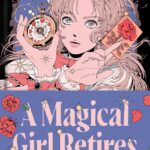


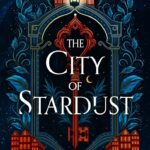

Oof! Tough month. Song of the Huntress and Botanical Daughter were both on my ‘curious’ list, but I suspect I’d have the exact same challenges as you did.
I was not expecting so many books I was excited for to fail me this much! But yeah, I think I’ll be crossing Lucy Holland off my list in future; that’s both of her books that haven’t worked for me!